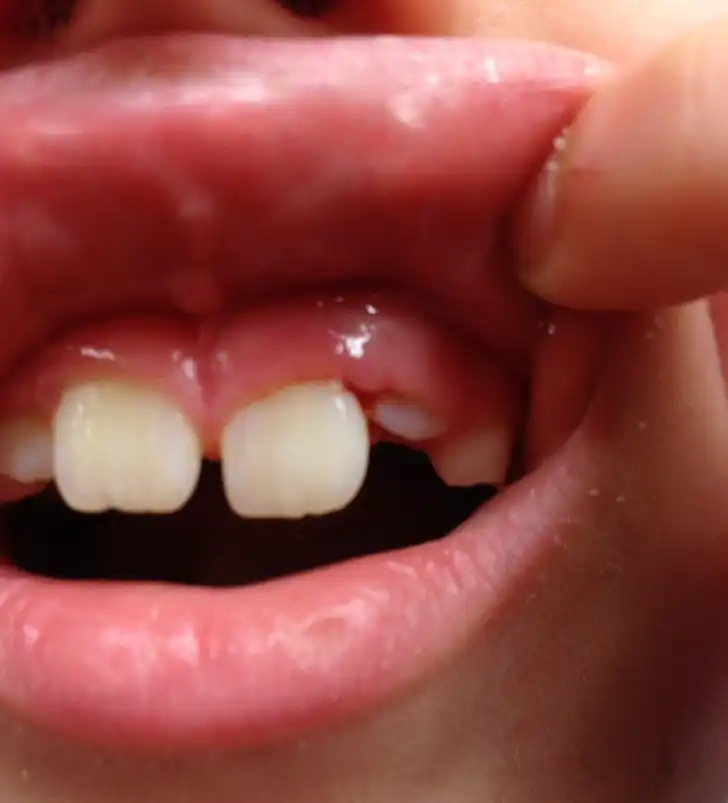Over five million teeth are knocked out every year, which can lead to permanent tooth loss if certain steps are not taken to preserve the tooth. If it is a baby tooth that is knocked out, do not worry about trying to save it, however, if it is an adult tooth you may be wondering, “What Should I Do if a Tooth Gets Knocked Out?”
The answer is to act quickly and follow these steps as recommended by the American Association of Endodontists:
1. Pick up the tooth by the crown (the chewing surface) NOT the root.
Locate the tooth immediately; don’t leave it at the site of the accident. Handle the tooth carefully when you pick it up, and never touch the root of the tooth, only the crown (chewing surface).
2. If dirty, gently rinse the tooth with water.
Use only water to gently rinse off any dirt. Do not use soap or chemicals. Don’t scrub or dry the tooth, and don’t wrap the tooth in a tissue or cloth.
3. Reposition the tooth in the socket immediately, if possible.
Try to put the tooth back into its socket right away. Gently push it in with your fingers, by handling the crown, or position it above the socket and close your mouth slowly. Hold the tooth in place with your fingers or by gently biting down on it.
4. Keep the tooth moist at all times.
The tooth must stay moist at all times, either in your mouth or, if it can’t be replaced in the socket, put it in milk, in your mouth next to your cheek, or in an emergency tooth preservation kit (such as Save-a-Tooth®). Don’t use regular tap water; root surface cells can’t tolerate that for extended periods of time.
5. See an endodontist or dentist within 30 minutes of the injury.
Bring the tooth with you to your emergency appointment ideally. It’s best to see the doctor within 30 minutes; however, it is possible to save a tooth even if it has been outside the mouth for an hour or more.
Why Does Milk Help to Preserve a Lost Tooth?
Placing a knocked out tooth in milk will help preserve a lost tooth is based on its properties that can potentially keep the tooth viable for a short period. When a tooth is knocked out or avulsed, it’s crucial to preserve it properly to increase the chances of successful re-implantation by a dental professional. Here’s why milk is often recommended for this purpose:
- Moisture: Keeping a lost tooth moist is vital for its survival. If the tooth dries out, the cells on the root surface can become damaged, reducing the chances of successful re-implantation. Milk provides a moist environment that helps prevent the tooth from drying out rapidly.
- pH Balance: The pH level of a substance affects the tooth’s integrity and survival. Milk has a nearly neutral pH, which means it is neither too acidic nor too alkaline. Maintaining a balanced pH helps preserve the tooth’s structure and prevent further damage.
- Nutrient Supply: Milk contains essential nutrients that can potentially nourish the tooth and its tissues, promoting cell viability and preserving the vitality of the tooth until professional treatment is received. These nutrients include proteins, sugars, vitamins, and minerals.
It’s important to note that milk is not a long term solution for preserving a lost tooth, and its effectiveness can vary depending on various factors, including the time elapsed since the tooth was lost, the condition of the tooth at the time of the trauma, and the individual’s oral health.
Overview
Losing baby teeth requires no further action, however, if you lose an adult tooth you will want to act quickly in order to save the tooth. If the tooth is dirty, give it a quick rinse under water, trying to avoid getting the root of your tooth too saturated. You can store the tooth in your mouth between your cheek and gums or place the tooth in milk while you seek emergency dental services.
Prioritize Your Dental Health
A healthy life starts with a healthy smile. Neglecting to take care of your dental health can lead to painful, expensive, and irreversible damage to your smile. Our dentists Dr. Brian L. Porter or Dr. Kelley Joo, work with patients to help them take charge of their dental health. Schedule your dental check-up by reaching out to Brian L. Porter, DDS at 281-422-3415 today.
Brian L. Porter, DDS
1109 E. James Ave.
Baytown, TX 77520
281-422-3415
View our Google Business Listing

